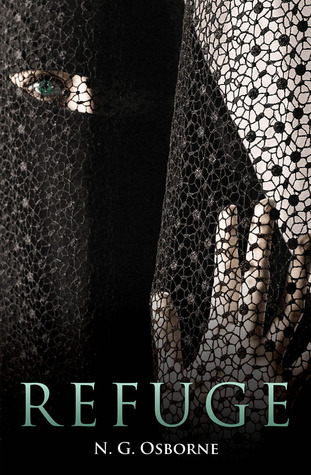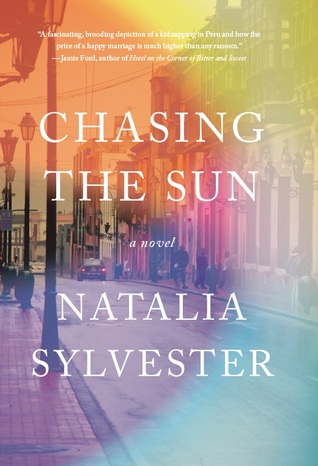 First off, can I just say look at that cover art? Gorgeous. Absolutely gorgeous. I am jealous of Karsak for having such beautiful cover art.
First off, can I just say look at that cover art? Gorgeous. Absolutely gorgeous. I am jealous of Karsak for having such beautiful cover art.Now, on to the substance. Chasing the Star Garden follows our narrator, Lily Stargazer, as she tries to unravel the mystery of a kaleidoscope given to her under strange circumstances. Lily is mainly an air jockey, and the book falls into a series called "The Airship Racing Chronicles," but really, there is very little to do with airship racing here; only two chapters (the first and the last) feature any real racing. The bulk of the story follows the kaleidoscope mystery. Lily is also somewhat of an alcoholic (her drink of choice is absinthe) and a user of both laudanum and opium, has two lovers that feature in the story (one of which is a fictionalized version of Lord Byron) and is a little bit into BDSM. Some of these qualities, mainly the addictions and her behavior regarding them, are rather less than endearing. For example, Lily has taken so much laudanum at one point that the airship she's supposed to be piloting ends up in trouble because she's high. However, Lily is well aware that she might be on a bad path, wondering, "If I continued like I did, what would be my end destination? The answer to that question was not pretty. I'd stopped asking it long ago." This self-awareness is rather more endearing, and allows one to root for Lily getting over her issues and finding some meaning in her life.
Character-wise, I rather liked most of them. Lily and her crew, Jessup and August, as well as Lord Byron and Lily's other lover, Sal, are all great. Celeste, a courtesan who shows up partway through, was less great. She was okay, I guess, but overall I found her bland, when her origins and plotline should have lent her an air of mystique. I liked how Lily's back story unraveled, and maybe Celeste would have been more interesting if she'd had a little more back story or we could see inside her head more--impossible, given the first-person perspective, but still. I would have also liked to see a bit more integration of the airship racing story, and the characters that went with it, like Cutter the American pilot and Etienne the French pilot.
I did find some plotholes in the main storyline, which revolves around using the mysterious kaleidoscope to search for a statue which was lost during ancient times. One part of the story involves using another statue to find it, which didn't make sense to me because the guy who carved and placed the statues had nothing to do with the guy who moved one of them, so why would one point to another? I also didn't really get how the kaleidoscope worked. There was something about it being "altered," but the random nature of kaleidoscope patterns kind of goes against the idea of them being able to reveal things when pointed in certain directions and at certain objects. As the book advanced, it took on more of a fantasy/supernatural/mythology air and kind of lost some of its early steampunk flair, with airships being used but not being the focus of the story. While this didn't really bother me, I can see where it would bother some people who were in it for a thoroughly steampunk tale, so keep that in mind; as the book goes on, the steampunk element is more for atmosphere than it is for actual substance. Oh, and as far as the "star garden" goes, it just refers to the sky, which is a bit...purple for my tastes.
Lastly, I found the entire final chapter rather abrupt. The reunion, the abbreviated race, the heroics--it all kind of seemed to jar with the speed of the rest of the story, and felt like Karsak just got tired of writing and wanted to wrap it all up. While I have no objections to the ending logically or emotionally, the pacing just seemed to be....off. I would have preferred to see this slowed down and fleshed out a bit more than it actually was.
Overall, however, I thoroughly enjoyed this, and will be picking up the next book of Lily's adventures, Chasing the Green Fairy--though I'd also be interested in seeing books following other main characters in this world!
3.5 stars out of 5.







